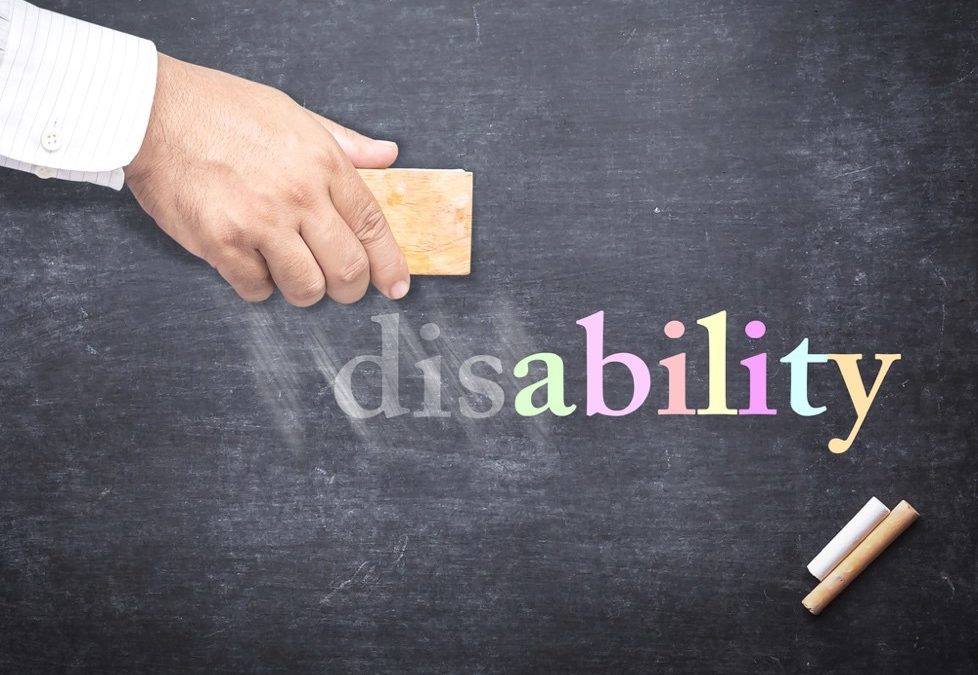Disabilities can mean much higher premiums, but there are options offering tailored coverage which may be a better fit.
There are several reasons why 43 percent of people have no form of life insurance. Some write it off as too expensive, too complicated, or currently unnecessary. Another reason is disability. This leads some to think they’ll be ineligible for any form of life coverage. Around 48 million Americans deal with a disability of some sort and while this may make certain aspects of life more challenging, it doesn’t make finding life insurance impossible.
Disability-based income and how it affects insurance
Disabled individuals are likely already in receipt of payments through either Social Security Disability Insurance (SSDI) or Supplemental Security Income (SSI). If you’re disabled and wondering if you may be eligible for either of those, the Social Security Administration (SSA) provides a checklist for applicants. The organization also offers Compassionate Allowances under certain circumstances.
Life insurers take these funds into account and gauge disabilities by how much they impact a person’s mortality. The insurance definition of “disabled” is broad enough to allow many conditions to still qualify for standard life coverage. The SSA’s classifications of impairments are a good basis for assessing a disability and its eligibility for support.
For example, an individual with dyslexia may qualify as disabled, as could someone with depression, an anxiety disorder, or certain skin conditions. These disabilities are usually not considered life-threatening, meaning a traditional life insurance policy may certainly be possible. However, not every insurer will see it that way.
The more commonly accepted notions of disability—things like arthritis, cognitive impairment, mobility dysfunction, or chronic illness—can make finding life coverage more difficult. A pre-diagnosed health condition of enough severity coupled with the receipt of SSA benefits typically disqualifies applicants from a traditional term life or whole life insurance policy.
How the pre-existing condition clause applies
Some insurers may still offer coverage, but the pre-existing condition clause is applied and will impact premium prices. Two periods usually follow, known as “look back” and “waiting” periods—although both involve waiting.
The look back is when insurers examine an applicant’s medical history for evidence and treatment of a disabling condition. A look-back review may take between a few months to as long as a year. A waiting period averages between one and two years. This is the length of time an individual with a look back-confirmed condition must be covered before a policy takes effect.
Further disability limitations and exclusions
How culpable someone is in their disability further affects coverage. Disabilities arising from criminal activity, suicide attempts, or alcohol/substance abuse are viewed as intentional acts and will likely only be insured for a short time, if at all. Legitimate disabilities requiring medication can fall afoul of substance-abuse limitations, so careful dosage habits must be observed.
Disability caused by aircraft accidents on non-scheduled airline flights is a further exclusion. If you’re a pilot or intending to travel via non-scheduled means, you might want to consider aviation insurance. Disabilities caused by high-risk pastimes like mountain climbing, scuba diving, or parachuting are usually excluded from standard coverage.
Where does someone go from there?
Disability doesn’t automatically disqualify someone. Applicants are appraised on a case-by-case basis depending on the severity of the disability, the individual’s overall health and how manageable the disability is. The condition will then be assigned a rating class which may vary between providers and will define the cost of premiums.
We recommend working with an insurance professional before beginning an independent search. Experienced insurance agents can provide a great deal of help in finding disability coverage by listing potential providers, making preliminary contact with them, and helping applicants gather the relevant documentation before considering their options.
Examples of coverage available for disabilities
- Guaranteed life insurance — These policies are provided regardless of disability level or other health concerns. The fact that they are guaranteed and distributed without any health questions or exams makes coverage very expensive. Furthermore, the amount of insurance available is typically much less than a standard policy, the highest being in the $50,000 to $100,000 range and only payable if the policy has been in place for one or more years.
- Group life insurance — Usually employer-provided, this option tends to disregard personal information like disabilities or health problems and, again, death payouts are not as high as standard options. However, premiums are typically low (sometimes even free for an employee) and there’s always the option to purchase additional coverage.
- Impaired-risk life insurance — Also known as high-risk life insurance, this covers people with disabilities impacting their life expectancy or general health. Their greater chance of death before the standard life expectancy makes premiums higher than standard policies.
Other available support when disabled
Disability can make certain things more financially difficult. Medicaid provides low-cost, sometimes free medical benefits to eligible disabled applicants. Medicare also provides medical help for eligible individuals under 65. The Affordable Care Act also made provisions to look after people even if they have a pre-existing condition.
You can get focused help to find coverage if you’re dealing with disability. NICRIS Insurance is dedicated to finding insurance solutions that fit the unique needs and lifestyles of our clients. Connect with us at the details below.
NICRIS Insurance focuses on providing clients with the appropriate suite of products to protect them, their interests and their loved ones. If you need some umbrella insurance advice or would like a free, personalized insurance review just drop us a line!

